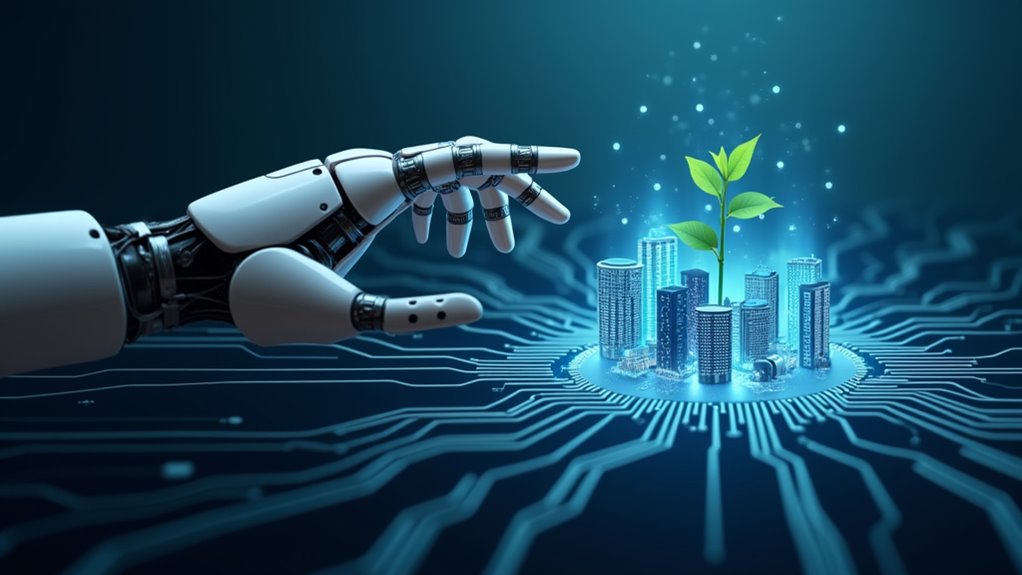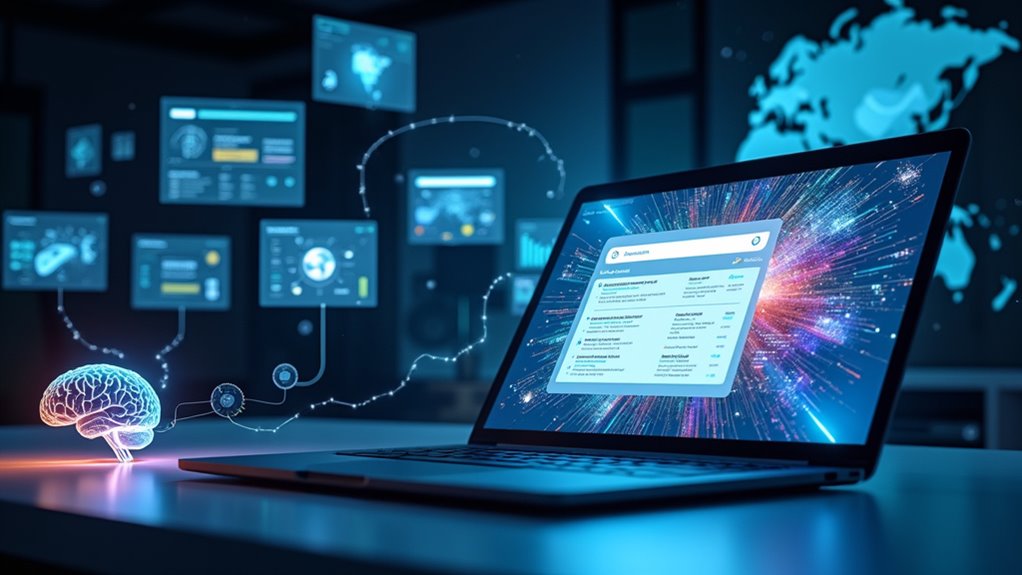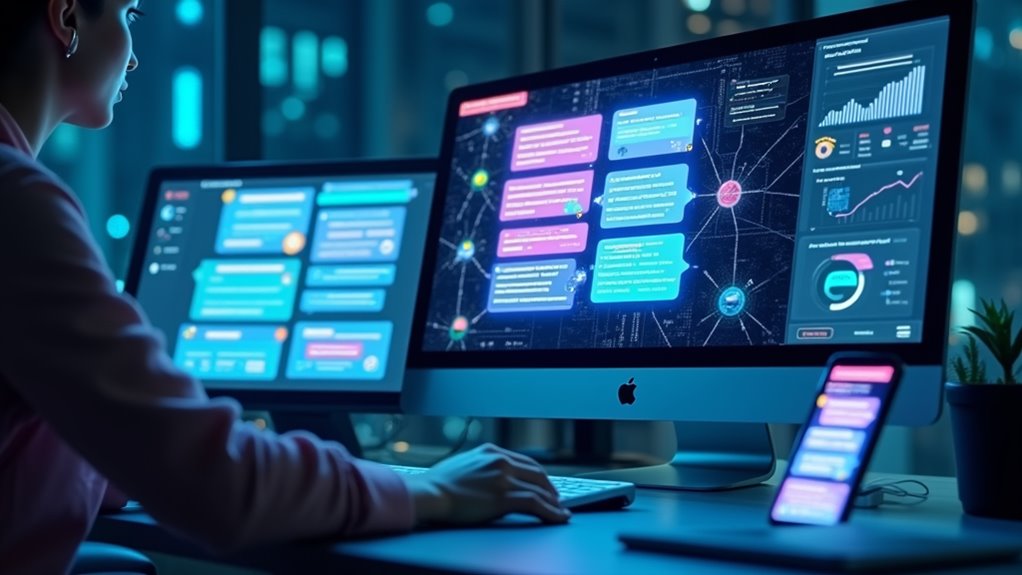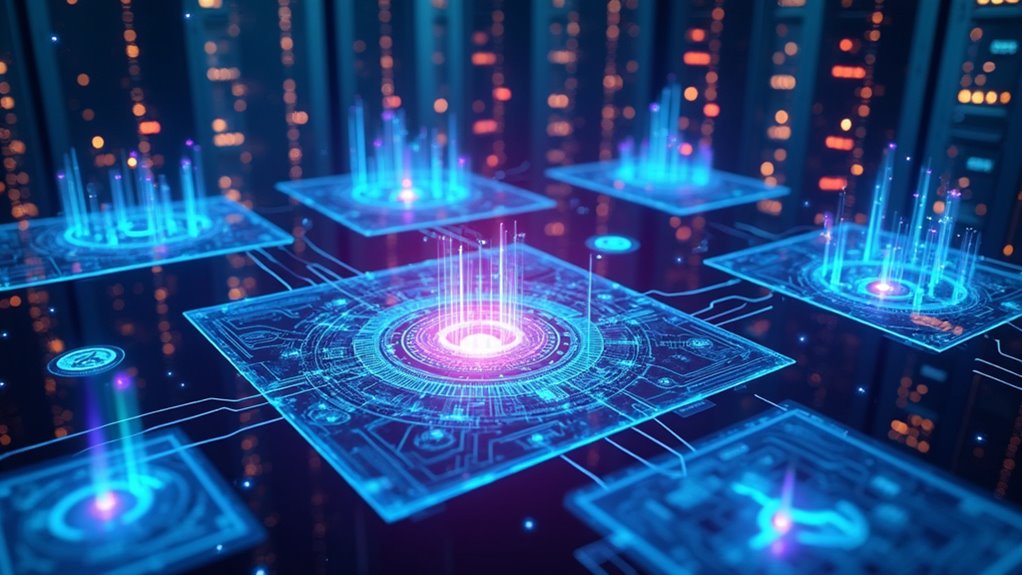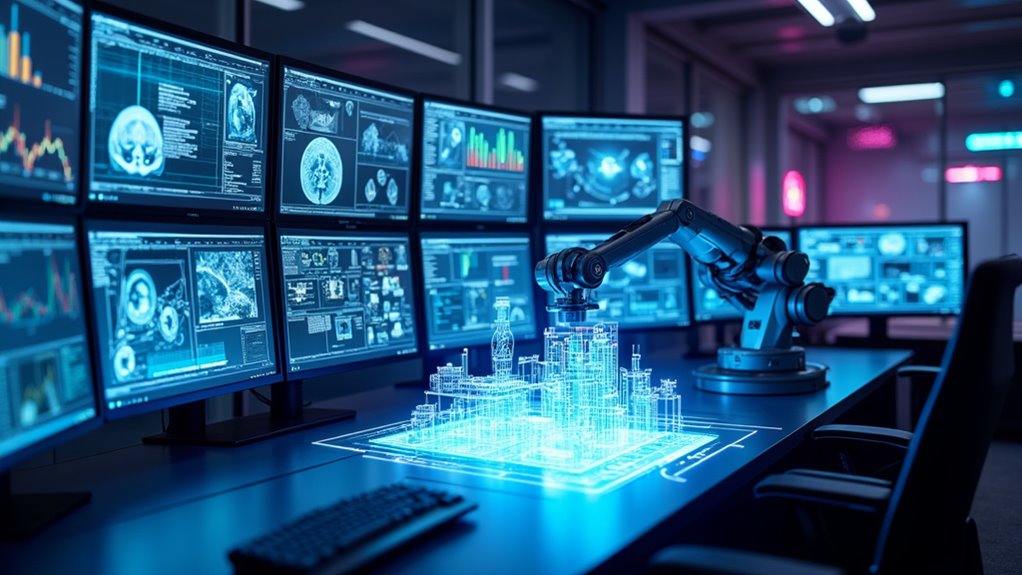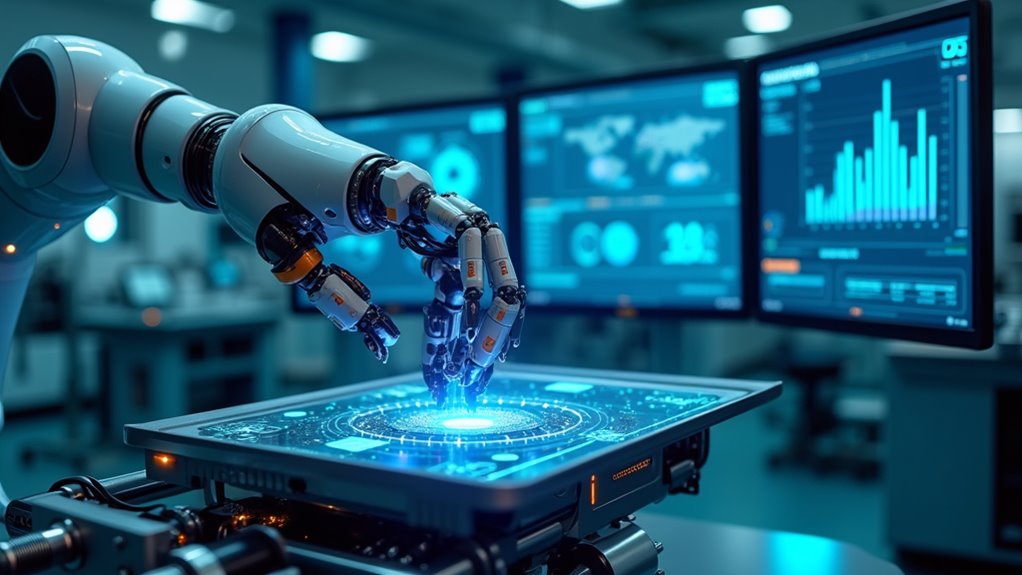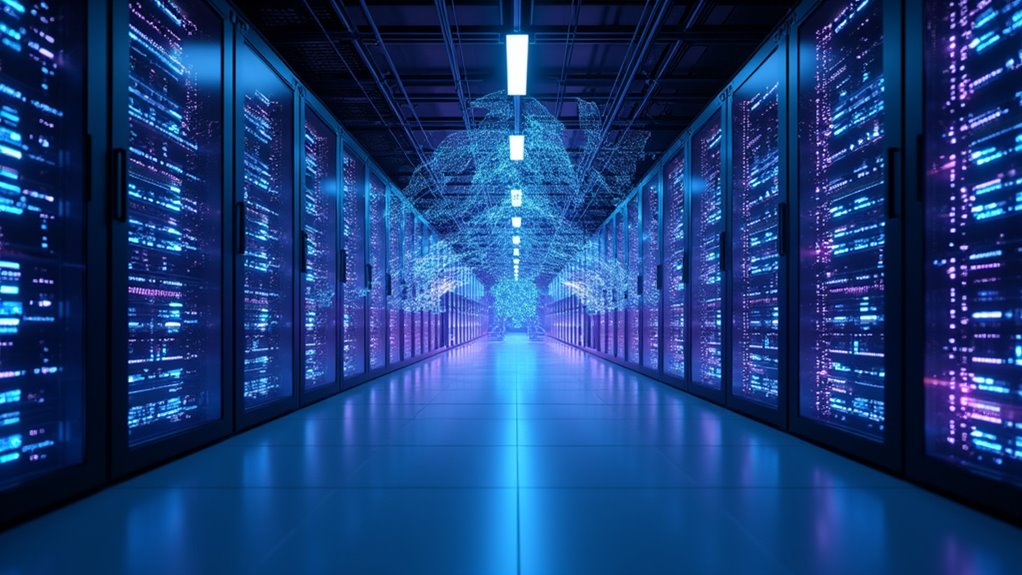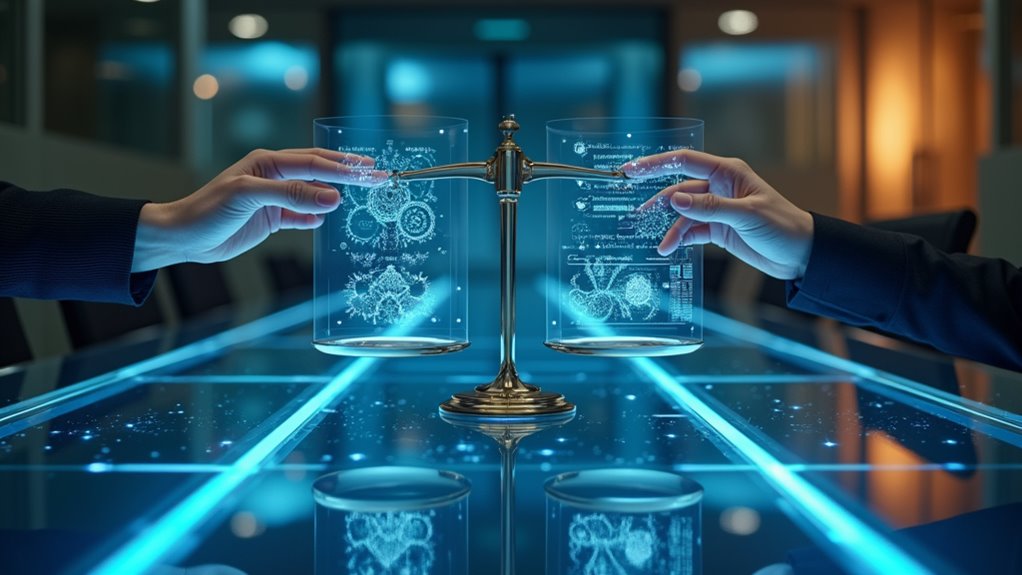Artificial intelligence transforms economies by delivering $4.60 for every dollar invested, with projections of $20 trillion global impact by 2030. It supercharges decision-making through rapid data analysis, automates repetitive tasks, and creates specialized careers like AI Ethics Specialists. While traditional jobs may vanish, AI offers solutions to climate change and security challenges. The technology’s power demands ethical frameworks to protect humanity’s interests. Discover how this computational revolution could reshape your industry and daily life.
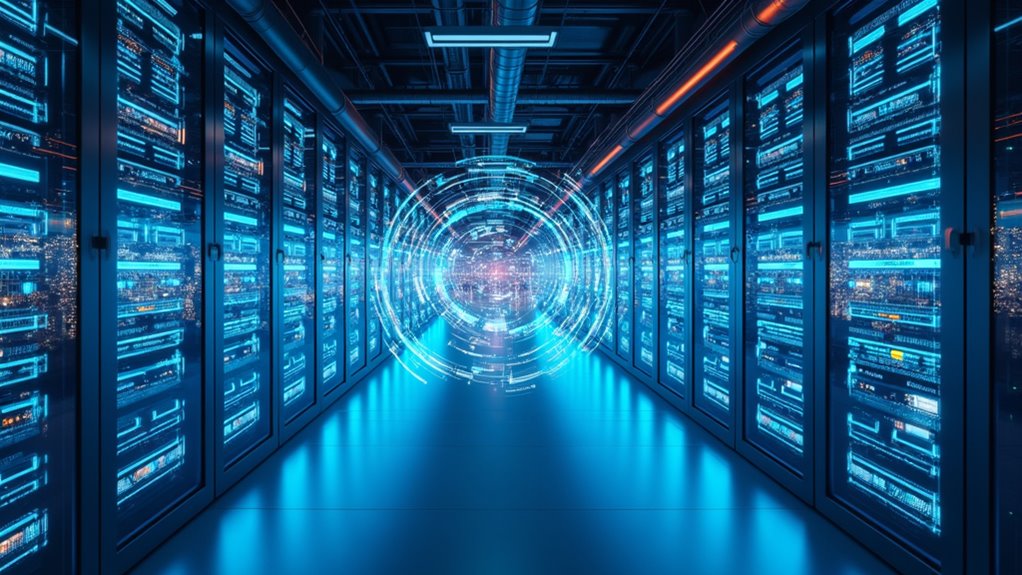
Revolution isn’t just a buzzword—it’s what’s happening right now with artificial intelligence transforming every corner of our modern world. AI advantages extend far beyond science fiction fantasies, reshaping economies and boosting productivity in ways previous generations couldn’t imagine.
Businesses implementing AI solutions aren’t just keeping up—they’re seeing a return of $4.60 for every dollar invested. That’s not pocket change. The global economic impact is staggering, with projections showing AI will contribute nearly $20 trillion to the world economy through 2030. Of course, with great power comes the responsibility of addressing AI ethics, ensuring these systems serve humanity’s best interests rather than exploiting vulnerabilities.
AI investments yield $4.60 for every dollar spent, driving a projected $20 trillion economic boost—with great power comes ethical responsibility.
Look around—AI is already making decisions faster than humans ever could. It’s analyzing mountains of data, automating repetitive tasks, and freeing up human workers for more creative endeavors. Machine learning algorithms are optimizing production lines in manufacturing facilities, dramatically reducing waste and improving quality control.
Industries from banking to healthcare are being reimagined through AI-powered systems that optimize everything from supply chains to customer service. This isn’t just about efficiency; it’s about transformation. When AI helps doctors diagnose diseases earlier or enables farmers to produce more food with fewer resources, we’re talking about life-changing impacts.
The job landscape is shifting too. Yes, some roles will disappear—that’s unavoidable. But new positions are emerging that didn’t exist five years ago. Specialized careers like AI Ethics Specialists and AI Prompt Engineers represent the future of employment in this evolving field. The key? Adaptability. Workers who embrace training programs and develop AI-adjacent skills won’t just survive—they’ll thrive in this new economy.
Beyond economic benefits, AI is tackling humanity’s biggest challenges. Climate change solutions, smarter resource management, and enhanced security systems are all benefiting from artificial intelligence applications. AI’s ability to operate with quantum bits dramatically increases storage capacity and processing speed, making previously impossible computational tasks achievable.
These technologies require robust data infrastructure and thoughtful implementation, but their potential to address global problems can’t be overstated. The AI revolution isn’t coming—it’s here. Those who understand its importance will help shape a future where technology amplifies human potential rather than diminishing it.
Frequently Asked Questions
How Does AI Differ From Machine Learning?
Artificial Intelligence encompasses the entire field of making machines simulate human intelligence, while Machine Learning is just one subset.
ML focuses specifically on algorithms that learn from data, either through supervised learning (with labeled examples) or unsupervised learning (finding patterns independently).
Think of AI as the ambitious parent with grand plans, while ML is the studious child who’s really good at spotting patterns in homework.
AI can exist without ML, but modern AI systems typically leverage ML capabilities.
What Educational Background Is Needed to Work With AI?
Working with AI typically requires a solid foundation in computer science, with degrees in this field providing essential programming and algorithmic knowledge.
Data analysis skills are equally vital – you’ll need to wrangle those datasets like a digital cowboy! Statistics and mathematics backgrounds help tremendously.
While specialized AI degrees exist, professionals can enter from various STEM fields. Master’s degrees can accelerate careers and command higher salaries, though only 17% of AI specialists currently hold them.
Ready to join the AI revolution?
Can AI Develop Consciousness or Emotions?
The consciousness debate surrounding AI remains hotly contested among experts.
Current systems don’t possess true consciousness or emotions – they run emotional algorithms that simulate responses based on patterns.
While AI can recognize and mimic human emotions through programming, it lacks subjective experience.
Could future systems develop something consciousness-like? Possibly, but we’re not there yet.
The philosophical question isn’t just technical but raises profound ethical considerations about how we’d treat potentially sentient machines.
Are There Ethical Frameworks Governing AI Development?
Yes, numerous ethical frameworks govern AI development. Organizations worldwide have established guidelines addressing ethical considerations like transparency, fairness, and accountability.
The EU’s proposed AI Act, UNESCO’s recommendations, and corporate principles from tech giants all contribute to the evolving regulatory frameworks. These guidelines aren’t just nice-to-haves—they’re becoming essential guardrails as AI capabilities expand.
Without them, we’d face a technological Wild West where profit might trump human welfare. Implementation remains challenging, though standards continue to evolve globally.
How Vulnerable Is AI to Hacking or Manipulation?
AI systems face significant hacking vulnerabilities through data poisoning, inference exploitation, and extraction methods. Threat actors can manipulate AI outputs by corrupting training data, compromising data integrity.
The manipulation risks extend beyond technical systems—AI-powered deepfakes and voice cloning now achieve frighteningly realistic results.
AI security measures often lag behind evolving threats. Organizations implementing robust protection frameworks see 60% faster incident response times, but the cat-and-mouse game continues as AI tools become available to both defenders and attackers.
